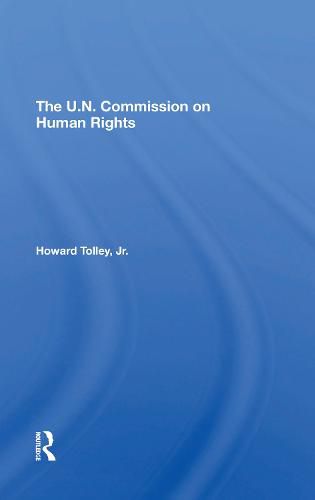Readings Newsletter
Become a Readings Member to make your shopping experience even easier.
Sign in or sign up for free!
You’re not far away from qualifying for FREE standard shipping within Australia
You’ve qualified for FREE standard shipping within Australia
The cart is loading…






In 1946, the United Nations Commission on Human Rights became the first international body empowered to promote global human rights. During its first twenty years, the Commission established most of the contemporary standards of human rights. Increased social awareness in the 1960s enabled the Commission to respond to specific complaints from individuals and nongovernmental organizations and to pressure offending governments by using various measures that ranged from exhortation and mediation to sanctions designed to isolate violators. These enforcement activities have increased the Commission’s visibility and have dramatically transformed its operation. Dr. Tolley’s thematic history of the Commission offers important insights into states’ political conduct in international human rights organizations, the evolving legal and institutional means of preventing human rights violations, and the difficulties encountered when an intergovernmental body is pressed to provide impartial protection to citizens against abuse by their own government.
$9.00 standard shipping within Australia
FREE standard shipping within Australia for orders over $100.00
Express & International shipping calculated at checkout
In 1946, the United Nations Commission on Human Rights became the first international body empowered to promote global human rights. During its first twenty years, the Commission established most of the contemporary standards of human rights. Increased social awareness in the 1960s enabled the Commission to respond to specific complaints from individuals and nongovernmental organizations and to pressure offending governments by using various measures that ranged from exhortation and mediation to sanctions designed to isolate violators. These enforcement activities have increased the Commission’s visibility and have dramatically transformed its operation. Dr. Tolley’s thematic history of the Commission offers important insights into states’ political conduct in international human rights organizations, the evolving legal and institutional means of preventing human rights violations, and the difficulties encountered when an intergovernmental body is pressed to provide impartial protection to citizens against abuse by their own government.